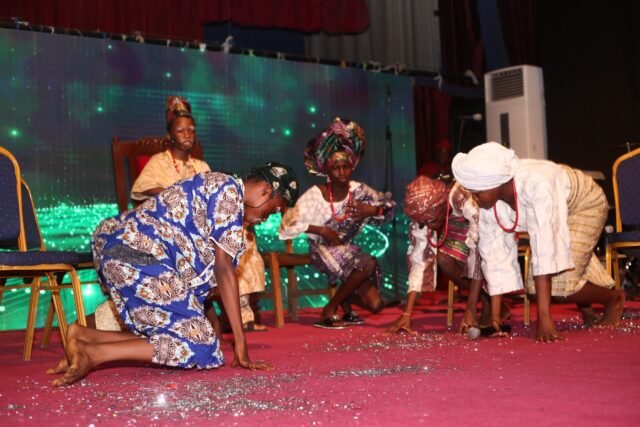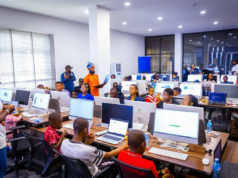At a time when Nigeria faces both incredible challenges and promising opportunities, experts in education and youth development are calling on teenagers to embrace technology as a tool for innovation, nation-building, and meaningful social impact. This message rang loud and clear on Saturday during the 30th Annual Teenage Festival of Life (TFL), hosted by Action Health Incorporated (AHI) at the University of Lagos (UNILAG).
The festival, organised in collaboration with the Lagos State Council for Arts and Culture (LSCAC) and the Lagos State Ministry of Education, brought together hundreds of students from public secondary schools across the state. The theme, “Young People Leveraging Technology for Social Good,” captured the urgency of preparing a new generation to thrive in a digital future—and to shape it.
For the organisers and stakeholders present, technology is not just a trendy tool or a pastime. It is a powerful driver of change, one that young people must learn to wield actively and responsibly if Nigeria hopes to build a sustainable, inclusive future.
Table of Contents
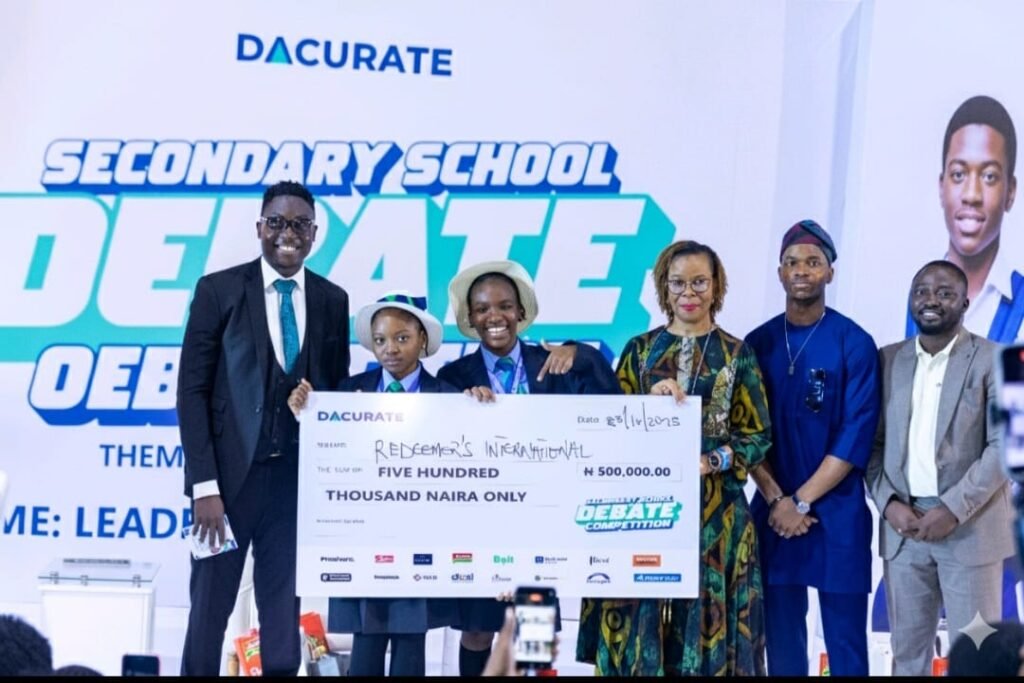
“Technology Is an Enabler” — AHI Leaders Challenge Teenagers to Think Bigger
Opening the event, Mrs. Adenike Esiet, Executive Director of AHI, reminded the teenagers that they are not just passive users of digital tools. They are a critical segment of Nigeria’s population—one with the energy, creativity, and numbers to shape national development.
Esiet noted that adolescents now make up more than half of Nigeria’s population and are key drivers of the country’s rapid digital adoption. Yet, she emphasised that their use of technology must go beyond entertainment or casual communication.
“The festival is not just for skill building; it is for awakening consciousness,” she said. “Technology goes beyond TikTok. It supports online learning, enables access to digital health information, and facilitates innovative solutions across sectors. Technology is an enabler.”
Her message underscored a deeply personal truth seen in communities nationwide: young Nigerians are already creative, curious, and tech-savvy. What they need now is intentionality—and opportunities.
AHI’s Programme Manager, Ms. Funso Bukoye, expanded on this, stressing that promoting purposeful tech use equips young people to drive sustainable development across Nigeria.
According to Bukoye, reaching the national target of 95% digital literacy by 2030 will require the joint effort of government, educators, civil society, and families.
“To sustain this impact, AHI calls for ongoing support to expand digital literacy programmes, bridge the digital divide, and engage young people to develop solutions across Nigeria,” she said.
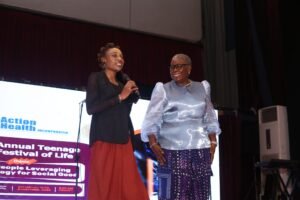
Government Officials Highlight Digital Progress — and the Work Ahead
Government representatives at the festival acknowledged that Nigeria is making progress but urged young people to take advantage of existing opportunities and remain curious.
Dr. Christiana Dasaolu, Assistant Director of Basic Education Services at the Lagos State Ministry of Education, stressed that curiosity is a crucial ingredient for innovation.
“When youths are curious, they look for problems to solve,” she said, applauding Lagos State’s ongoing efforts to integrate digital learning tools into classrooms. She expressed confidence that, at the current pace, Nigeria could fully transition to computer-based testing by 2030.
Her remarks reflect the broader push at state and federal levels to modernise education systems. In Lagos, computers are gradually being introduced even in primary schools—a move intended to ensure that students begin developing digital skills early.
Mrs. Yinka Oladipo, Director of the Lagos State Agency for Mass Education, added that technology has already proven useful in improving students’ academic performance, access to information, and exposure to new ideas.
However, she warned that digital resources come with risks if young people are not properly guided.
“Parents should monitor and guide what their children access online. Technology is valuable, but without supervision it can expose young people to harmful content,” she said.
Her call for balance reflects a common concern among Nigerian parents: how to allow digital engagement without encouraging addiction, misinformation, or exposure to harmful trends.
Educational strategist, Mr. Adewunmi Adeyemo, offered practical examples to inspire the teenagers. He explained that even simple gadgets could become tools for creativity and social impact.
“With just a mobile phone, a young person can build a blog documenting how organisations use technology to solve problems,” he said. “Technology has both positive and negative sides, so it must be used in ways that benefit society.”
Adeyemo’s approach demystifies innovation. Teens do not need expensive equipment or sophisticated labs to start building digital skills—just curiosity, consistency, and purpose.
Teenagers Showcase Creativity as Schools Compete at TFL’s 30th Anniversary
The festival was not all speeches and workshops; it also celebrated the artistic and intellectual talents of the students. Participating schools presented drama, music, and poetry that reflected the festival’s core message: young people can and should use technology to solve real problems.
The atmosphere was vibrant—filled with cheers, camera flashes, colourful costumes, and proud teachers encouraging their students from the sidelines. Performances drew on everyday realities such as cyberbullying, digital learning, community health, and the challenges teenagers face navigating an online world.
One of the standout participants, Etoa Anthony, said technology had made schoolwork easier, especially through access to information and digital learning platforms. He acknowledged, however, that some parents still express concerns about excessive screen time.
In the competition categories, St. Luke’s Junior Grammar School, Bariga, emerged the overall winner in Drama and Poetry. Their performance creatively portrayed how technology—when used wisely—can address issues affecting adolescents, from peer pressure to lack of access to health information.
Other schools that made strong appearances included St. Francis Junior Grammar School, Iwaya; St. Luke’s Grammar School, Bariga; and Oke-Odo Senior High School, Alimosho. Their performances demonstrated that Nigerian students are capable of blending creativity with social consciousness when given the right platform.
As the festival marked its 30th year, many attendees reflected on how TFL has grown from a small youth programme into one of Nigeria’s longest-running platforms for teenage expression, leadership, and life-skills development. Year after year, it engages thousands of students, teachers, and stakeholders in dialogue about issues affecting young people.
This year’s edition, with its focus on technology, felt particularly relevant. Nigeria sits at the intersection of a digital revolution and persistent socio-economic challenges. For many teenagers in public schools, events like TFL offer rare access to mentorship, exposure, and opportunities to explore future careers in technology.
As the event closed, there was a shared sense of optimism: that with the right support, Nigeria’s young people can use technology not just for entertainment, but to influence public service, digital health, agriculture, leadership, and community development.
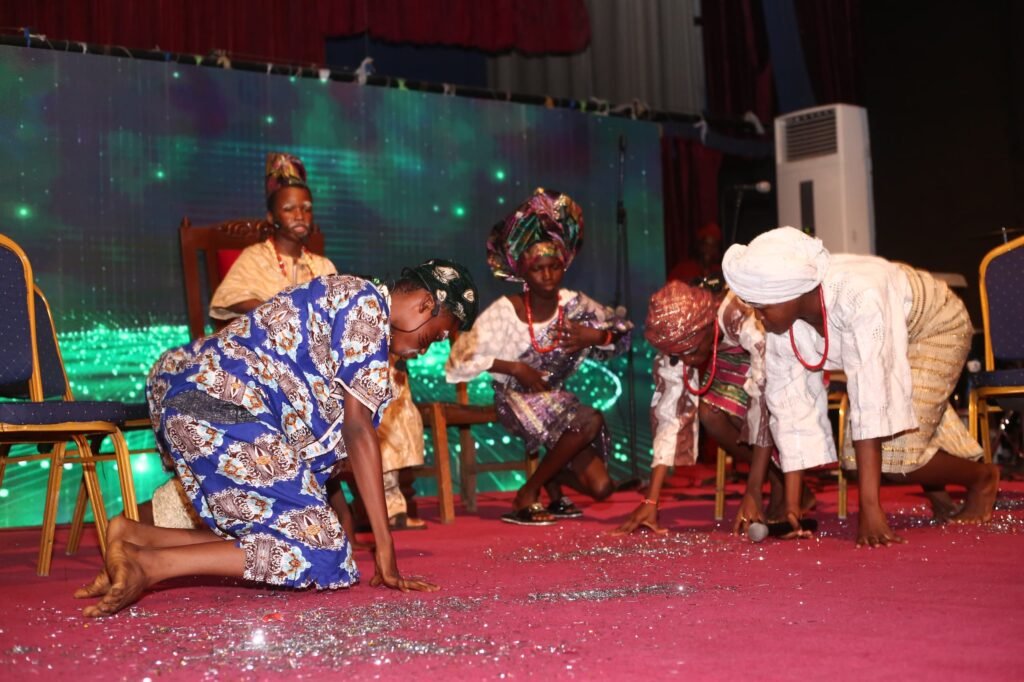
Conclusion
The message from educators, government officials, and youth advocates at TFL 2025 was simple but powerful: Nigeria’s teenagers must not only use technology—they must understand it, shape it, and deploy it for the greater good.
Technology is no longer optional. It is the backbone of innovation, the key to global competitiveness, and a gateway to solving many of Nigeria’s most pressing challenges. The country’s future depends on how intentionally young people engage with it.
And if the passion and creativity on display at UNILAG are anything to go by, the next generation is ready.
Join Our Social Media Channels:
WhatsApp: NaijaEyes
Facebook: NaijaEyes
Twitter: NaijaEyes
Instagram: NaijaEyes
TikTok: NaijaEyes


